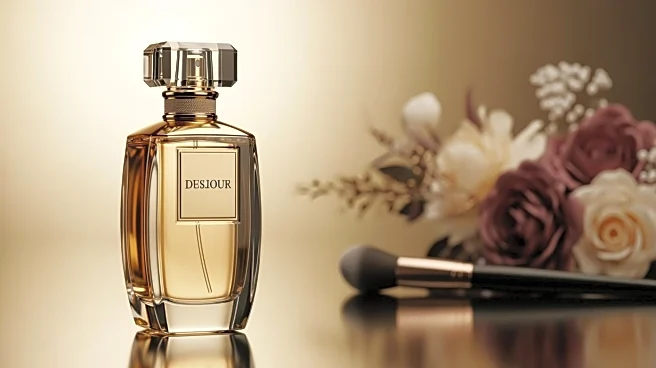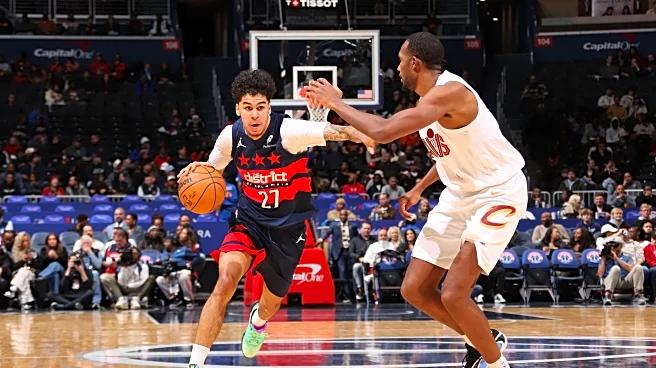What's Happening?
Kering, a major player in the luxury fashion industry, has decided to sell its beauty division to L'Oréal for $4.6 billion. This move comes just two years after Kering established the division, which included
the acquisition of Creed for $3.8 billion. The beauty unit generated $376 million in revenue last year, accounting for about 2% of Kering's total revenue. The decision to divest from beauty marks a significant strategic shift under the leadership of Kering's new chief executive, Luca de Meo, who took over in June. The sale is seen as a response to declining sales in Kering's core fashion brands, such as Gucci, which reported a 25% drop in sales. The divestment is part of a broader strategy to refocus on Kering's primary fashion and jewelry businesses.
Why It's Important?
The sale of Kering's beauty division to L'Oréal highlights the challenges luxury fashion brands face when diversifying into the beauty sector. Managing a beauty business requires specialized knowledge in areas such as formulation, regulation, and distribution, which differ significantly from the fashion industry. By selling the division, Kering can concentrate on its core competencies in fashion and jewelry, potentially improving its financial performance. For L'Oréal, acquiring Kering's beauty assets, including the Creed brand, enhances its portfolio and strengthens its position in the luxury beauty market. This acquisition could lead to increased competition in the beauty industry, particularly in the high-end fragrance segment.
What's Next?
Following the sale, Kering is expected to focus on revitalizing its fashion brands, with an emphasis on speed to market and reducing reliance on traditional runway shows. L'Oréal, on the other hand, will work on integrating Kering's beauty brands into its existing portfolio, expanding their distribution networks, and leveraging its marketing expertise to boost sales. The acquisition may also prompt other luxury brands to reconsider their strategies in the beauty sector, potentially leading to further consolidation or divestments. Additionally, Coty, which currently holds the license for Gucci Beauty, may face increased pressure to diversify its offerings as it prepares for the expiration of its license in 2028.
Beyond the Headlines
The decision by Kering to exit the beauty business underscores the complexities and risks associated with diversification in the luxury sector. It also highlights the importance of strategic focus and the need for companies to adapt quickly to changing market conditions. The move could signal a broader trend among luxury brands to streamline operations and concentrate on their core strengths. For L'Oréal, the acquisition presents an opportunity to further solidify its leadership in the beauty industry, but it will require careful management to ensure the successful integration of Kering's brands and to capitalize on their potential.











